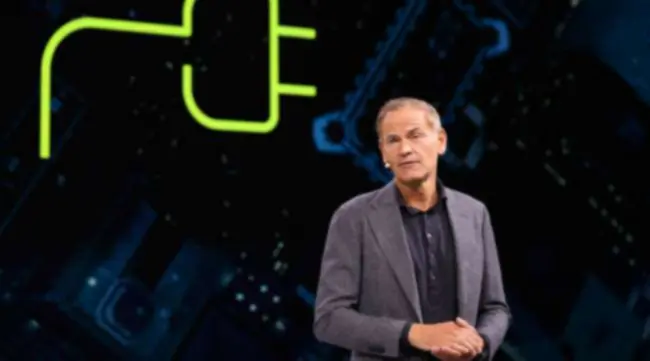
European auto executives are walking a tightrope at this week’s Munich motor show: Praising how impressive their latest electric models are while simultaneously warning Brussels that selling only EVs within a decade is impossible.
Their stance — albeit contradictory — is intended to pile pressure on the European Union to renege on a plan to eliminate new combustion-engine cars by 2035. Senior officials from Volkswagen AG, Mercedes-Benz Group AG and Stellantis NV on Sept. 8 criticized the ban as they confront a sluggish European car market, uneven EV demand and growing competition from Chinese producers, led by BYD Co.
“It is unrealistic to expect to have 100% electric vehicles by 2035,” Volkswagen CEO Oliver Blume told reporters at the show, shortly after the firm had showcased several new EV models to the press. “I am strongly advocating for reality checks.”
The lobbying sets up a high-stakes clash between Europe’s industrial giants and policymakers over the pace at which the bloc can decarbonize. It comes ahead of a Sept. 12 summit between European Commission President Ursula von der Leyen and industry chiefs.
German Chancellor Friedrich Merz, whose party has criticized the phaseout, on Sept. 9 backed the industry’s requests, urging Brussels to stay open to multiple technologies as it seeks to reduce transport emissions.
“We are, of course, committed to the transition to electric mobility,” Merz said in a speech at the Munich show. “But we need more flexibility in regulation.”
For carmakers, the impending ban on gas-powered cars threatens disruption across supply chains that employ millions and are central to national economies from Germany to France and Italy. For regulators, any retreat risks undermining the EU’s climate credibility and pushing the region further behind China in EV deployment.
“Now is the time to take stock of what in policymaking has worked, and what needs adjusting,” Mercedes CEO Ola Källenius told Bloomberg. “We are very convinced that doing nothing is not an option.”
Automakers are urging the Commission to permit sales of cars using technologies such as range extenders — small combustion engines that recharge a vehicle’s battery — for a longer period, and to preserve subsidies and regulatory leeway for hybrids.
They also want continued purchase incentives for EVs and lighter safety requirements for smaller models. Such steps, executives contend, would give buyers and suppliers more time to adapt while helping Europe’s manufacturers remain competitive with overseas rivals.
The 2035 deadline is “not achievable,” said Stellantis’ European head, Jean-Philippe Imparato.
EU officials and environmental campaigners argue that diluting the 2035 target would jeopardize the bloc’s climate objectives and create mixed signals for investors. They say the phaseout is crucial to speed clean-tech investment and reduce Europe’s dependence on imported fossil fuels.
All attention now shifts to the Sept. 12 meeting in Brussels, where automakers and parts suppliers will outline their concerns to von der Leyen. While aides insist the 2035 deadline is still on the table, officials have signaled potential compromises on transitional technologies — setting up a tense confrontation with industry leaders.
The Commission has launched a review of the auto-sector targets for 2030 and 2035 and is expected to put forward any proposals next year.
The debate has extra significance as the EU determines how far to push its climate ambition. Countries are split over a Commission proposal to cut emissions by 90% by 2040, and France is among those seeking to elevate the issue to leaders’ discussions next month.
What to do about climate targets for the auto sector is likely to feature prominently in that debate, with Italy pushing for an exemption for biofuels as a condition of its support for the 2040 objective.

Leave a Reply